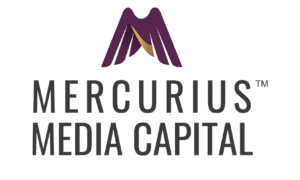Life and living have seen a drastic change in recent times. These changes became even more glaring with the outbreak of the coronavirus. Just about the time when we thought the world was going to shut down, cutting-edge technologies started flying out from every corner of the globe.
In business, for example, things have remained relatively stable until 2020 when technology swept up the business space, not minding whether or not you are ready for the change. Things got more techy ranging from the way we communicate and work remotely from our homes to the use of Artificial Intelligence (AI) and collaboration or network.
In medicine, the use of smart inhalers, artificial organs, and robotic surgery are indicators that things won’t remain the same for long. Other industries and sectors have not been left behind. Many people have made names for themselves as disruptors in their respective industries leveraging technology.
One quick example is Indigo Agriculture which uses a system known as the Indigo Atlas which combines remote sensing, ground equipment, historical and weather data to identify subtle differences in crop performance across regions thus, raking in 200 million dollars in financing in January 2020. Another quick example is San Francisco based cryptocurrency company known as Ripple which has come to revolutionize how money and value are exchanged through blockchain.
MILC, a product of Welt der Wunder TV has also followed as a disruptor in the media content industry solving the problems of outdated licensing approach, exploitative activities of intermediaries and middlemen as well as the reduced access of content creators to buyers and users. All these are being achieved through the various systems in the MILC platform such as Governance, Launchpad, the MLT tokens, and the Social Community Hub.
Challenges in the Media Content Industry
The media content industry suffers from a content license trading approach which involves frequent travels to trade fairs. The costs of participation in these fairs are huge coupled with the high transportation expenses. The outbreak of COVID-19 with its attendant movement restrictions has further exposed the loopholes in this system.
Coupled with the financial setbacks, there is also the problem of buyers’ difficulty in selecting the right and desired content since they are usually faced with an unmanageable volume of content at such fares. Unless one is an expert who really knows what one wants, picking the right media content is herculean.
The struggle does not end with the buyer selecting the content and deciding to buy it. This stage is followed by another extremely strenuous process of actual license negotiation which involves lawyers and a plethora of middlemen. Since there are no established international licensing standards, lawyers seem to derive pleasure from the stress that comes with the overtly costly and time-consuming multi-staged process of delivering a bespoke licensing agreement.
All these make the current process of media content exchange and licensing very unattractive. Apart from being unattractive, sellers do not have direct access to buyers. The exploitative activities of lawyers, distributors and middlemen reduce the profit for content creators even when buyers are paying unnecessarily higher amounts than normal. The need for a better system of doing this is long overdue and thanks to MILC for showing us a better way.
What MILC Brings to the Table
First, MILC provides a platform to digitize the whole licensing system thereby removing the cost of and risks associated with travels to trade fairs. And what more? In a period fraught with travel and gathering restrictions, transactions can keep taking place even from the comfort of people’s homes. This also ensures that content owners and sellers have real time access to buyers.
The digitization, apart from saving travel costs, also eliminates the exploitative activities of middlemen. The legal fees for developing license agreements are also done away with because the process is an automated one.
The encumbrances of working with FIAT currencies through banks and other financial institutions are eliminated as the MILC platform works with the MLT token and a blockchain that is not under the control of anyone.
MILC has a Launchpad, a system that allows content creators to raise funds for the production of their content. This works by giving investors the opportunity to participate financially in the contents which they are interested in. The content owners simply make a pitch and invite investors to indicate their interests. This is a win-win for both parties.
Prospects and Realities
If you are familiar with the seaside, you would have known that tides come whether or not one is prepared. If one is prepared, he can ride the tide but if not, he will be washed. Whether we are prepared or not, the whole world is going techy. And it will be better for us not to move against the trend. Blockchain technology has come to stay and it will inevitably disrupt every industry and sector.
The media content industry is no different. MILC has developed the MLT token which serves as a medium of exchange, following blockchain technology. Other businesses and organizations will follow soon leaving the outdated analogous methods to gather dust in the trash can.
Conclusion
Although the media content industry has lots of problems, MILC has given us a platform to minimize, if not eliminate them. Through this platform, both buyers and sellers are saved from the hassles of long travels. Content creators are given the opportunity to raise funds for their projects even before they are completed. Also, licensing costs are saved and both buyers and sellers are better off for it. Does it get any better? The media is keeping a close watch.



































